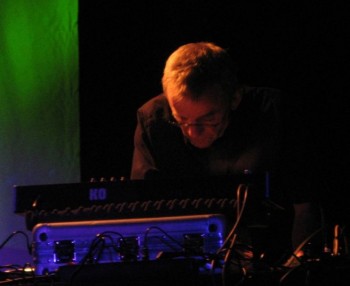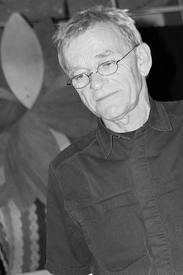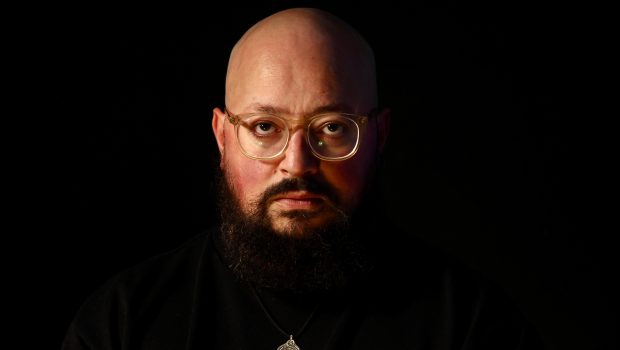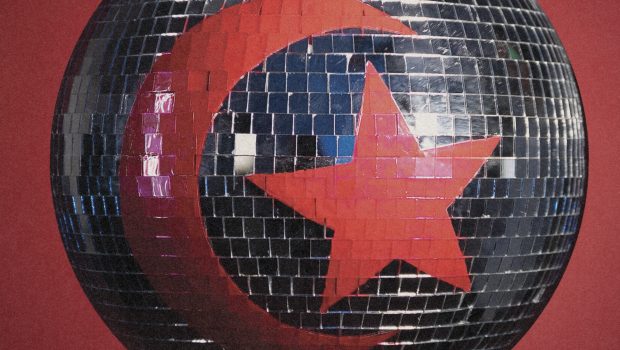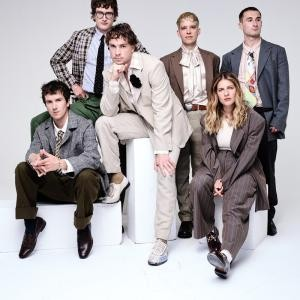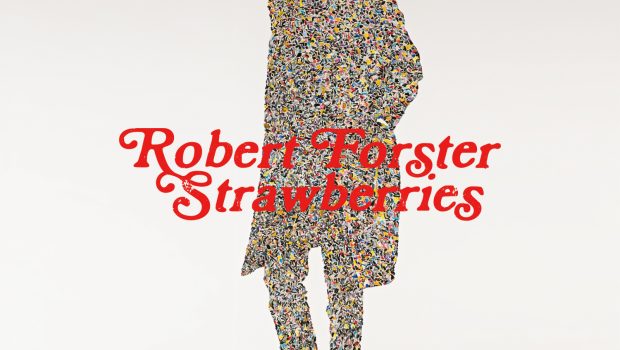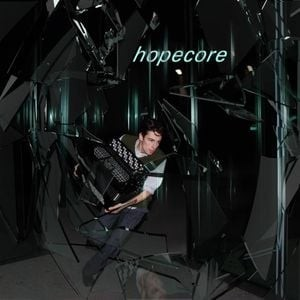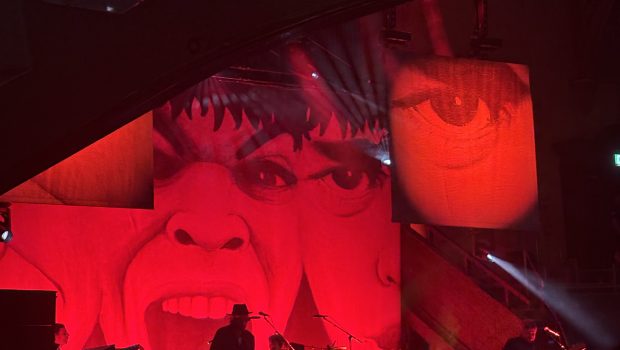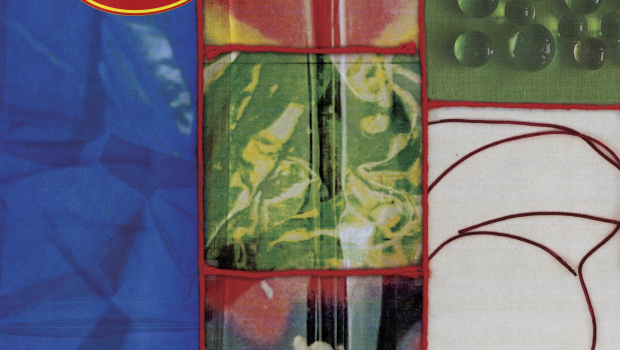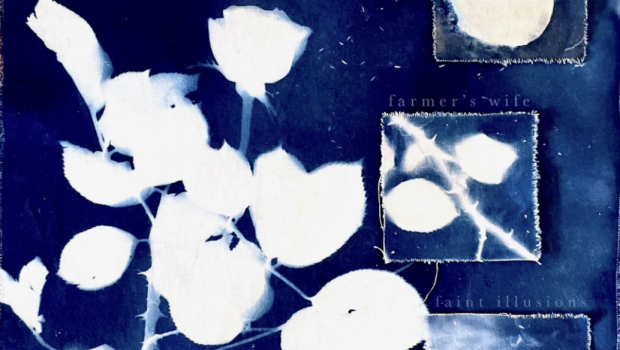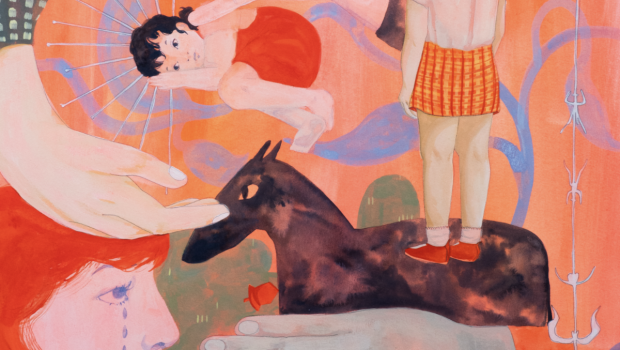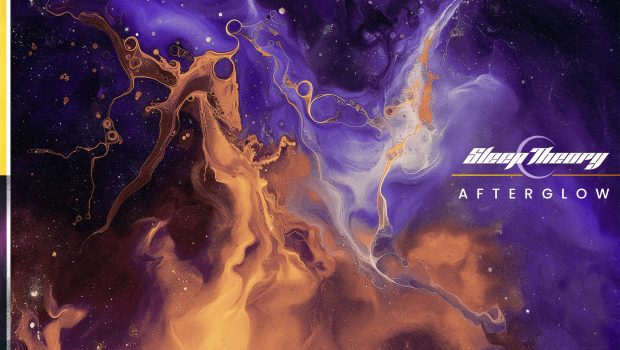Krautrock: has there ever been a more casually racist moniker for a music genre? In this day and age, with the musical landscape awash with weird and wonderful sub-genres -Math Rock, Aquacrunk, Witch House etc- the term “Krautrock”, coined by the British press in the 1970s as an umbrella term to describe a new wave of musically disparate bands emerging from the rubble of post-war Germany, now seems an arcane throw-back from the days of Dad’s Army. How the term ever stuck and became immortalised in plastic laminate, on the shelves of record shops the length and breadth of the country is beyond me. It would be like calling Italo Disco “Wop Boogie”.
The artists responsible for this music generally prefer the term “Kosmishe”. And it’s into this bracket that the albums of Hans-Joachim Roedelius along with fellow cosmic counter-cultural experimentalist Dieter Mobieus (what a name!), under the name Cluster, would more easily slot. Cluster emerged 40 years ago from the quazi-mythical Zodiak Free Arts Lab, a Berlin institute run by Roedelius. ZFAL was a space for all manner of performance where students and counter cultural acid heads would gather in a shared love of the avant-garde, free jazz and psych-rock as they tried to create something different from the blues-based hegemony of American and British popular music.
Manchester psychedelic jam band , Gnod, couldn’t embody this approach to music better. Their free-Jazz approach means that no two Gnod gigs are the same. Tonight, proceedings get underway with a projection of Jodorowzky’s The Holy Mountain whilst at the side of the stage a Gnod member delivers some performance poetry in sign language. Cymbal chimes and sound effects build to create an atmospheric calm before the storm- so far so psychedelic. Then the rhythm section kicks in and the Gnod behemoth steps down in full force. Waves of effects-drenched trumpet and guitar swoosh around the big bass and drum sound, building and easing off. The individual members riff around motifs, always exploring so that a Gnod gig always has the feel of a live jam: the audience is never sure where the musicians are going because the individual band members don’t exactly know themselves. This is not to say that the music is all over the place; on the contrary, there’s a grinding, protracted, tribal dimension to Gnod’s brand of space-rock that makes it very danceable, bizarrely akin to the locked in groove feel of twenty minute Fela Kuti number.
Watching a band jamming can give you the sense that they’re having more fun thaan the audience, but Gnod’s proclivity toward self-indulgence might leave some a bit frustrated but it is just a necessary by-product of how they approach music- they are one of the few bands out there that are dripping with integrity and genuinely trying to do something different, and to that you must doff your cap.
Qa’aa (pronounced Kaa) are like a Spanish Gnod (with maybe a few more dance records in their collection). Qa’aa’s set oscillates between something that verges on Animal Collective to proper abstract noise interludes. There’s more of a touch of Faust about Qa’aa whose, abstract, freeform soundscapes act as structured counterpoint to their riffs and grooves. Their set ends with a nice long spell of shimmering digital feedback hanging in the air, and ushering in the main event – Dieter Mobieus.
Mobieus, at 67 (67!), with his fitted black jacket and spectacles looks every bit the silver fox- less like a man ready for the slippers and pipe, more like an evil genius bond villain. Very cool. Where once he would have stood behind miles of wires, valve amps and vintage organs, Mobieus now stands behind a stripped-down desk of CDJs and midi controllers. But Mobieus was always too forward thinking to have much respect for the past. Like an Orb show, Mobieus’ set comes in waves- the beats sneak up on you, emerging gradually from the beneath until before you know it you’re locked in.
There’s a lot of Cluster-y moments going on under the surface- delicate shimmery syth riffs, chimes, woodblock effects, slightly sinister lullaby-type melodies. But there’s a modern twist on it. For a lot of the set Mobieus grounds these textured grooves with a low-slung 4/4 kick drum, making the whole thing sound like a mangled, take on deep house. There seems to be a feed-back loop at play here. Where once Mobieus along with compatriots Tangerine Dream and Kraftwerk have influenced generations of dance music producers, now Mobieus’ music can at times sound like a slightly more textured, experimental form of Chicago house. At 67 Moebius’ music is still very forward thinking, experimental, with a deceptive funk bubbling and simmering away, it wouldn’t sound at all out of place alongside some of the more recent releases by young pretenders a fraction of his age on labels like Warp.
In the smoking area, whilst smoking what he describes as “one of his healthy cigarettes”(?), I overhear Moebius tell Gnod’s drummer that the band remind him of Cluster in their youth, and I can’t help thinking whether Islington Mill reminds him of the Zodiac Free Arts Lab where bands could live and rehearse in their attempt to forge a new experimental music. And as Dieter Moebius retires to the comfort of his hotel, leaving Gnod and Qa’aa, back stage, jamming on bongos into the night, I hope that the cockles of his heart a warmed by the spirit of Kosmische living on, on a cold Sunday night in a corner of Salford.
